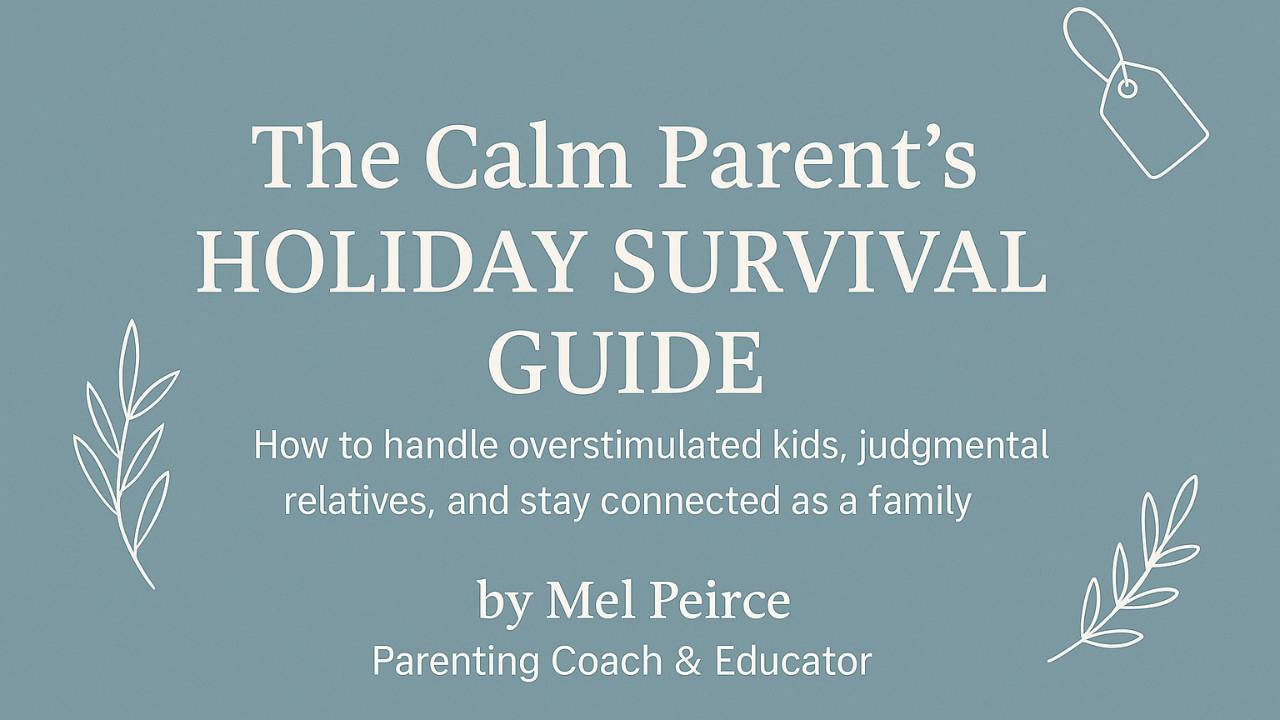#1 Tip for Getting Kids to Talk
Nov 09, 2021
Do you feel like you’re in the dark about what’s going on in your child’s life? Do you find yourself asking lots of questions to try to connect more and keep up to date on where they’re at and how they’re doing? I know that’s my first instinct! How was school? What did you do? Is everything okay? What happened? Did you get all of your homework done? Where are you at on your college applications? Have your teachers turned in their recommendations?
I don’t know about you — but my brain has a constant checklist running, for myself and everyone in my family. So when I see one of my family members, my brain typically goes to their checklist. My brain wants an update so it can check the items off the list. The checklist has high level items like are they okay and is there anything I need to be concerned about. It also includes what day of the week it is and what their activities are.
I didn’t realize how much I was doing this until my daughter pointed out that every time I go into her room I’m just asking questions and pointing out what she needs to do. Thankfully, she was kind when letting me know which made it easier for me to receive her feedback without getting defensive — she was totally right.
My checklist had gotten in the way of my connection intention, and to actually connect, I had to stop asking questions. Because the best way to get your kids to talk — is for you to stop talking and stop asking questions!
Kids don’t like being interrogated, especially when they are upset. As a child, did you ever have an adult tell you why you shouldn’t be upset, why it’s not that big of a deal, or what you should do instead? When adults minimize what a child is experiencing, kids become less likely to share in the future.
I know that when one of my kids was upset, the first thing out of my mouth was typically “What happened?” or “What’s wrong?” Can you relate? I’m not sure how your kids respond, but I would get very short answers back of “It’s nothing, I’m fine” or “Just friend stuff, we’ll work it out”.
My kids weren’t big talkers… or so I thought.
The problem was that when they did share, I was always full of advice. Telling them what they could do to help “fix” the situation, how they should handle it, or telling them that it would be fine. I was talking more than I was listening, so they stopped talking.
I now realize that for kids to actually talk, they need to feel heard — and the best way to do that is to actually listen attentively, acknowledge how they feel, and don’t try to fix anything.
So if this is something that you struggle with and you want to get your kids talking more you might try this — when they are upset, stop what you are doing and attentively listen with a few noises (Mm hmm or I see) to acknowledge that you’re listening.
Instead of asking what happened or why they are upset, just name the feeling. You seem really sad / frustrated / disappointed / etc. Be specific if you can. If you say “I understand how you feel”, your child may not believe you. But if you get specific about how trying new things can be really scary at first because you don’t know if you’ll be good at it or not, then they know that you really do understand.
I found that my efforts to cut back on the questions and listen more than talk made a world of difference in getting my kids to talk more. I admit that this has not been easy — My brain still wants a status update for my checklist.
It has taken serious work and intentional parenting on my part to shift how I communicate with my kids. I’m intentionally working on being more present so I can listen better, and I’m learning to calm my brain down so the checklist takes a backseat. As I do the work, my relationships with my kids are changing. We are growing closer, and I know so much more about what’s going on in their lives and what they are thinking about.
Let me be the first to tell you that I am an imperfect parent doing this work. Part of it is figuring out how to support myself, and finding grace and compassion for myself for the mistakes I made and continue to make on this parenting journey. I have to remind myself often there’s no such thing as a perfect parent.
Each day I continue to work on becoming better, and trust that my kids are learning from me that it’s possible to learn, change, evolve, and to become a better version of yourself — even as an adult and parent.
If you want your kids to always work to become their best, go first. Work on becoming your best too.
If this resonates with you, I would love to help you on your journey to a new version of you! My Parenting on Purpose Toolbox is full of strategies to help you keep your cool and communicate so your kids will listen (and talk!), and how to help your child navigate strong negative feelings like anxiety and worry. Line up a free call to learn more about my programs and how Parent Coaching can help make parenting easier for you! Go to https://coachmelpeirce.as.me/consult to schedule a call today.
Join the Confident Parenting Community.
Receive the latest tips and tools from the Confident Parenting Toolbox to support your kids
(and yourself!) with today's challenges so your whole family can thrive.
We hate SPAM. We will never sell your information, for any reason.


